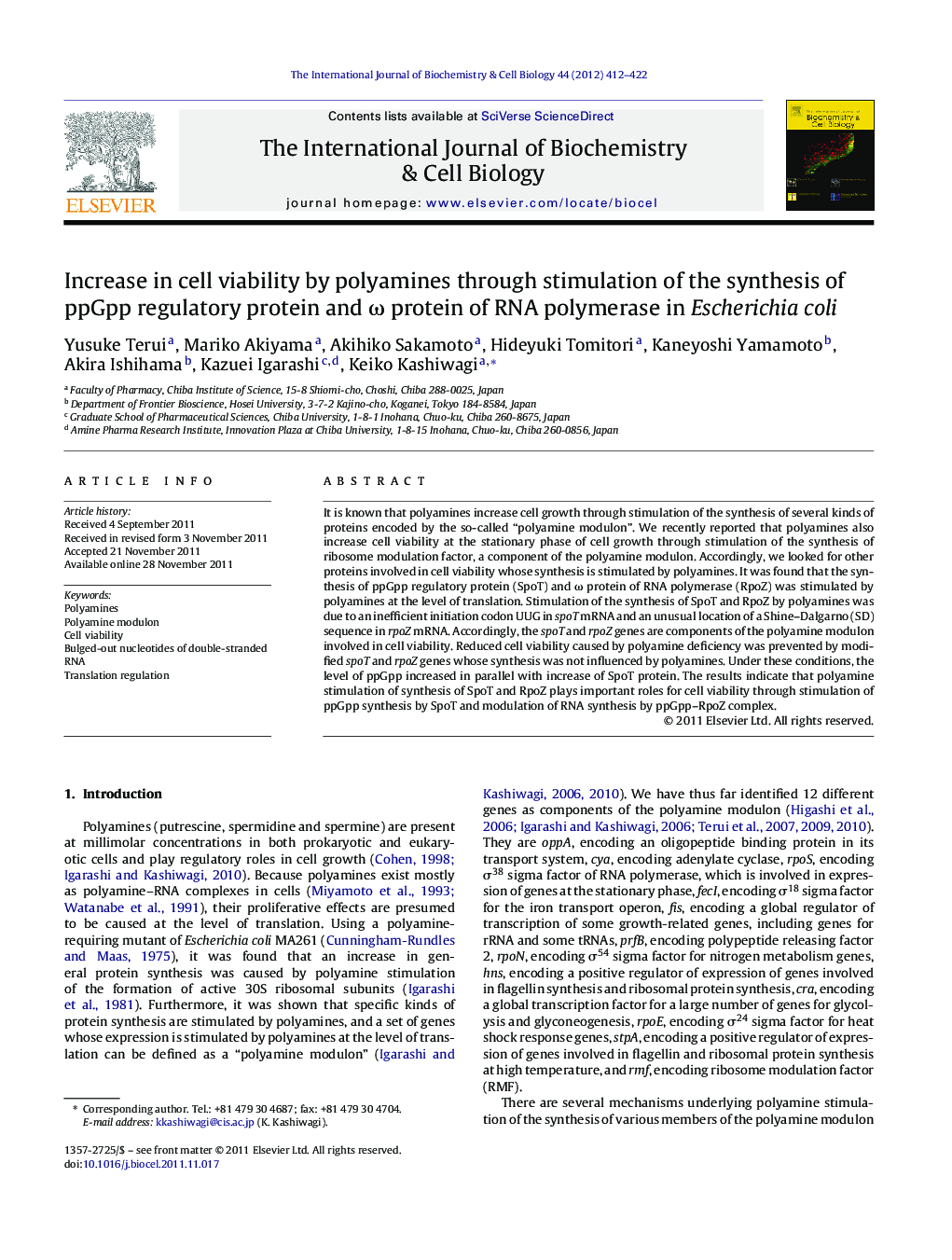| Article ID | Journal | Published Year | Pages | File Type |
|---|---|---|---|---|
| 1984107 | The International Journal of Biochemistry & Cell Biology | 2012 | 11 Pages |
It is known that polyamines increase cell growth through stimulation of the synthesis of several kinds of proteins encoded by the so-called “polyamine modulon”. We recently reported that polyamines also increase cell viability at the stationary phase of cell growth through stimulation of the synthesis of ribosome modulation factor, a component of the polyamine modulon. Accordingly, we looked for other proteins involved in cell viability whose synthesis is stimulated by polyamines. It was found that the synthesis of ppGpp regulatory protein (SpoT) and ω protein of RNA polymerase (RpoZ) was stimulated by polyamines at the level of translation. Stimulation of the synthesis of SpoT and RpoZ by polyamines was due to an inefficient initiation codon UUG in spoT mRNA and an unusual location of a Shine–Dalgarno (SD) sequence in rpoZ mRNA. Accordingly, the spoT and rpoZ genes are components of the polyamine modulon involved in cell viability. Reduced cell viability caused by polyamine deficiency was prevented by modified spoT and rpoZ genes whose synthesis was not influenced by polyamines. Under these conditions, the level of ppGpp increased in parallel with increase of SpoT protein. The results indicate that polyamine stimulation of synthesis of SpoT and RpoZ plays important roles for cell viability through stimulation of ppGpp synthesis by SpoT and modulation of RNA synthesis by ppGpp–RpoZ complex.
